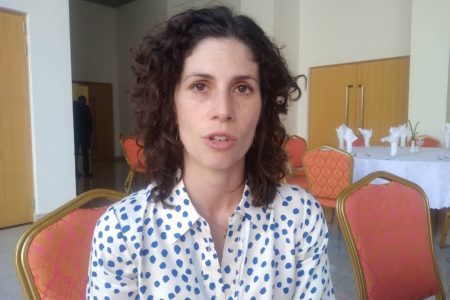Tax and Extractives Lead at the Intergovernmental Forum (IGF) on Mining, Minerals, Metals and Sustainable Development, Alexandra Readhead, has stressed the need for Ghana and other mineral-rich countries in Africa and across the globe to have “a clear vision of what they want to prioritise in the mining sector, in order to get the desired benefits from those natural resources.”
She argued that the benefits of the mining sector should catalyse other industries and sectors and fuel broader economic growth in countries like Ghana.
Madam Readhead whose work involves designing mining sector-specific solutions to some of the most difficult taxation challenges for resource-rich developing countries made the remarks during an exclusive interview with Business Finder during the just-ended global conference on the Future of Resource Taxation in Lusaka, Zambia.
The three-day conference , jointly organised by the IGF and the African Tax Administration Forum (ATAF) looked at how governments can improve revenue collection in the mining sector, what the evolving international tax landscape means for the mining sector and accelerating a low carbon transition through taxation.
The IGF Tax and Extractive lead maintained that it was important for the Ghanaian government and other governments around the world to know what resources they have , to understand the geology and value of the minerals they have so they can have a clear vision for the mining sector.
Focusing solely on revenues from taxes was a narrow way of looking at things, rather looking at other areas along the supply chain can be useful; looking at opportunities to upscale Ghanaian citizens in specialised areas to build their skills and
According to the tax and extractives expert , it is critical to know which different benefits are available from mining and which of them are important to the country immediately because “it’s not necessarily possible to have them all. Some will come with trade-offs.”
Government must survey the mining landscape, make an assessment of what makes economic sense and come out with a blueprint or vision.
“It comes at a cost because it might mean less revenue because those investments, those requirements potentially put additional costs on investors so it’s important for government to survey the landscape for possible benefits from the sector and make an assessment of what makes economic sense,” she stated.
Mining, isolated from rest of economy
As tax experts, feedback from countries that the IGF works with is that ultimately revenues are usually the primary benefits that governments get from the mining sector and that’s because mining is often an isolated industry in remote areas with no links to the rest of the economy.
Automation in sector reducing human labour
Ms Alexandra Readhead observed the patronage of automation and technology in most mineral-rich countries, including Ghana, “which means there is going to be less jobs at the mine sites and so we have to take that into account , that benefits from mining is diminishing and there is need to re-visit fiscal regimes to make sure that the revenues are well compensating.
Tax framework for transition minerals now
The IGF’s Lead, Tax and Extractives who also leads the Secretariat’s project to address tax Base Erosion and Profit Shifting (BEPS) in mining agreed with other analysts that countries rich in critical minerals start preparing tax frameworks for the critical minerals.
“ It’s very important for countries to get their houses in order; mining is making a comeback, it’s gonna play a very important role in the energy transition especially for minerals that are important to renewable energy technologies and I think for countries that are hosts of those minerals , now is the time,” she maintained.
- Galamsey: Mahama govt revives jail Ghanaians, deport foreigners policy - 4 April 2025
- E-Levy refund to take effect on April 7 - 4 April 2025
- GRIDCo restores power following nationwide system disturbance - 4 April 2025

